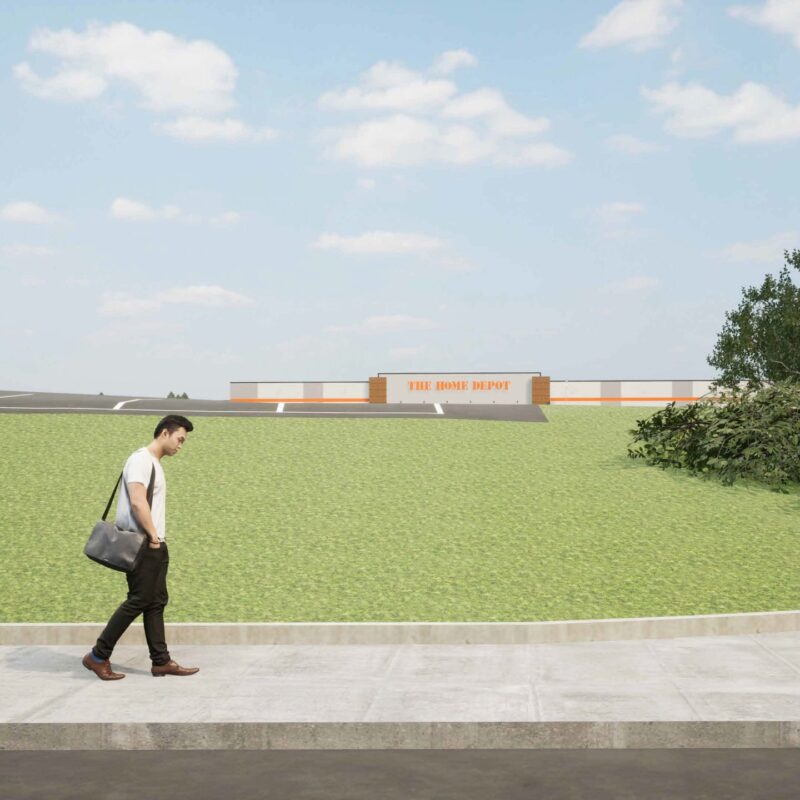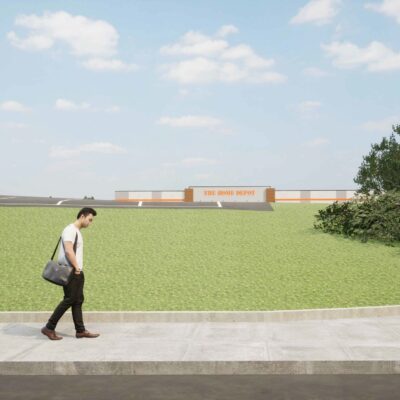Undergraduates’ typical culminating class products—hastily scribbled exams, papers slapped together with a lot of caffeine and little sleep—are destined for the dustbin. But the nine seniors in Betsy Roettger’s community design studio put together plans that will help a nonprofit build housing for Charlottesville’s homeless.
Single Resident Occupancy housing (SRO) is the next step up from a homeless shelter. Essentially, an SRO is a dorm—many of them have computer labs and exercise rooms —albeit a dorm that provides easy access to social workers and services for people long accustomed to living on the street. Virginia Supportive Housing (VSH), a Richmond-based nonprofit, has built SROs in Richmond, Norfolk and Virginia Beach, and is in the midst of finishing one in Portsmouth. Formerly homeless people live in the facilities, often for many years, in hopes that they will stabilize their lives, find work and, eventually, move up to independent living.
The nonprofit plans to build an SRO in Charlottesville by 2011, and to that end, Roettger’s students evaluated various SRO sites around the city that had access to mass transit and were in “transitional” areas. The class narrowed the list from 10 sites to four, and then
|
Charlottesville’s homeless got indirect help from UVA undergrads in an architecture design studio. |
each student picked a site and designed a 60-unit facility to fit the space. On December 9, the students exhibited their projects for VSH staff as well as design professionals.
“It’s an amazing amount of work that we would have paid a lot of money for,” said Candice Streett, VSH’s deputy director of housing. Most of the sites were relatively small, leading students to design SROs several stories tall. The students were creative—one rendering included a billboard screaming an Apple ad that might not meet city code but would give VSH a much-appreciated revenue stream.
Streett said that she could incorporate some of the design elements the students concocted, like louvers or easily reconfigured furniture. But many of the designs would likely cost a lot of money to construct. “We can’t afford much debt service,” said Streett.
The other problem with good looking design is that ostensibly high-priced digs for the homeless could backfire politically. At one of the Tidewater facilities, “we had a city councilor complain that it looked too nice,” said Streett.
Over the next year, VSH will flesh out a proposal, secure a site and get it rezoned in order to apply for government funding spring 2010. It got a jump on the project earlier this month when the Charlottesville Area Community Foundation awarded VSH $75,000 for a local SRO.
Students Christy DePew and Jessica Vranas were energized by time spent at Charlottesville’s rotating shelter, run by PACEM. Based on their experiences, they suggested to Streett that VSH incorporate attractive outdoor areas. Observed DePew, “They like being outside.”
C-VILLE welcomes news tips from readers. Send them to news@c-ville.com.






